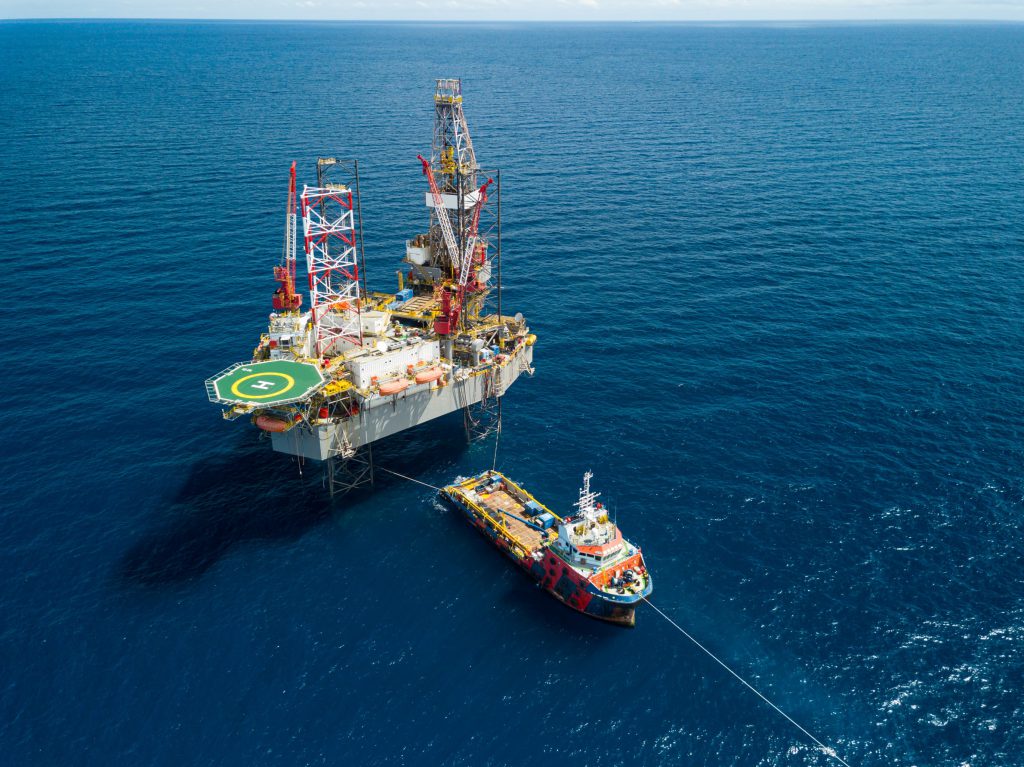
Opsealog’s Marinsights helps Total Gabon improve positioning data integration for fleet monitoring operations.
AIS ship tracking data: Total Gabon has an active crew boat fleet of five vessels on average. The weak connectivity onboard these crew boats forced Total Gabon to rely solely on tracking services and shore reports to monitor vessels’ operations.
How to overcome ais ship tracking data reception difficulties?
With little redundancy of AIS monitoring systems and tracking data being available but rarely handled altogether, TG experienced a low quality of AIS tracking data, keeping the affiliate from having a consistent vision of the fleet and benefiting from this valuable decision-making data.
Poor AIS position reception is a recurrent problem in the maritime sector. It happens for various reasons, including technical issues with the port AIS antenna and AIS equipment on board some vessels failing to send information to the satellite. Although Total Gabon had access to various data suppliers, they also struggled to integrate and analyze the data from multiple sources.
Total Gabon’s challenge was to overcome the AIS reception difficulties, secure accurate and regular information, and then capitalize on the available data.
The challenge was made greater because the crew boats do not have internet access. Therefore, the activities declaration is made monthly by the operator’s regional office. When tracking information is weak or non-existent, Total Gabon has difficulties regularly controlling the accuracy of reports when the ships are actively working.
Improving vessel monitoring and optimizing fleet utilization
Through a partnership that started in 2018, Opsealog and Total Gabon decided to collaborate and explore this specific challenge with Opsealog’s Marinsights service. Marinsights is a performance management service that combines data integration, processing, visualization, and expert analysis in one single offer, helping clients like Total Gabon monitor and optimize marine operations using data already available.
In this particular case, the AIS data available was fragmented, which needed special measures. Opsealog believed that complementing the AIS data with other data sources could help Total Gabon restore its monitoring processes and optimize the utilization of its crew boat fleet.
Marinsights collects and integrates data from multiple sources and suppliers such as EFMS (electronic fuel management systems), weather forecasting, Onboard Reporting Software, and AIS. Tailored-made algorithms help cross-check information from these sources, giving clients accurate and actionable information shared through a web portal and discussed during periodic efficiency meetings with Opsealog. A team of marine experts provides direct support for logistics teams to boost performance and promote innovation.
Boosting ais ship tracking data sources
The first step to improving the tracking data reception was to increase data redundancy by integrating other information sources.
Data sources’ activation included:
data reception from offshore antennas, using a security surveillance provider already available in the company,
enabling the local AIS antenna belonging to the branch,
installing Iridium beacons onboard the vessels with malfunctioning AIS equipment.
Improved monitoring that generates savings
For Total Gabon, Marinsights data integration capabilities were essential for collecting data from the sources available and giving one interface for both data input from the shore reports and the visualization of information from all AIS data suppliers, simplifying the data compilation and analysis by all users.
Today, Total Gabon receives an average of one position every two to five minutes, depending on the data source (AIS or Iridium). With more positions and a better data reception frequency, the Marinsights team could analyze and cross-check information from AIS and the monthly reports. Creating specific cost control reports in partnership with the client gave them better visibility on what has happened in the field.
“The partnership with Opsealog has enabled us to better monitor our vessels, their activities, and reduce our operational costs. After the first phase of collaboration in which we focused on fuel savings, we continue to work together to find other optimization areas such as fleet voyage optimization, cost control, etc. We appreciate this partnership, and it will allow us to further our research to generate savings and reduce CO2 emissions.” Aymeric Dubernet, Marine specialist at Total Gabon.
Additionally, Total Gabon users can now:
1) Identify which locations were visited and for how long
2) Know with precision when vessels are actively working or not
3) Receive notifications when ships arrive in port and in the field,
4) Have an overview of their maximum speed to comply with local regulations.
Interested in knowing more about Marinsights? Ask for a free demo now!
